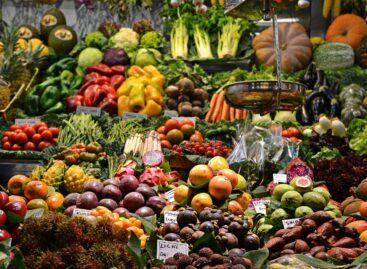Moldova’s fruit exports are getting stronger: in competition with Hungarian producers?
Moldova’s fruit production, especially the export of apricots, plays an increasingly important role in the markets of the European Union. The country’s natural features favor agricultural production, and an association agreement entered into force in 2016 allows Moldova to export its agricultural products to the EU duty-free.
 Such opportunities are especially important in fruit growing, since more than 80% of Moldova’s exports go to the community’s markets, where Hungarian customers can also meet Moldovan products.
Such opportunities are especially important in fruit growing, since more than 80% of Moldova’s exports go to the community’s markets, where Hungarian customers can also meet Moldovan products.
An important question for Hungarian fruit producers is how this duty exemption affects their competitiveness. Although Moldovan exports are strengthening, the fruit and vegetable products of Hungarian producers are still in demand in the EU. For example, the demand for apricots has increased in recent years, and Hungary has also significantly increased its production areas, which ensures that they continue to hold their own in international competition.
The development of Hungarian and Moldovan agricultural relations will remain a priority topic in the future, especially within the framework of EU membership and Hungarian agricultural policy.
Related news
The economic sentiment index deteriorated in the euro area and the EU in February, but improved in Hungary
🎧 Hallgasd a cikket: Lejátszás Szünet Folytatás Leállítás Nyelv: Auto…
Read more >Fruit prices in Serbia rose significantly in 2025
🎧 Hallgasd a cikket: Lejátszás Szünet Folytatás Leállítás Nyelv: Auto…
Read more >EU adopts rule to prevent destruction of unsold clothing
🎧 Hallgasd a cikket: Lejátszás Szünet Folytatás Leállítás Nyelv: Auto…
Read more >Related news
Veganuary inspires millions of people in the UK
🎧 Hallgasd a cikket: Lejátszás Szünet Folytatás Leállítás Nyelv: Auto…
Read more >The Store of the Future opens again at the SIRHA Budapest exhibition! (Part 4)
🎧 Hallgasd a cikket: Lejátszás Szünet Folytatás Leállítás Nyelv: Auto…
Read more >








